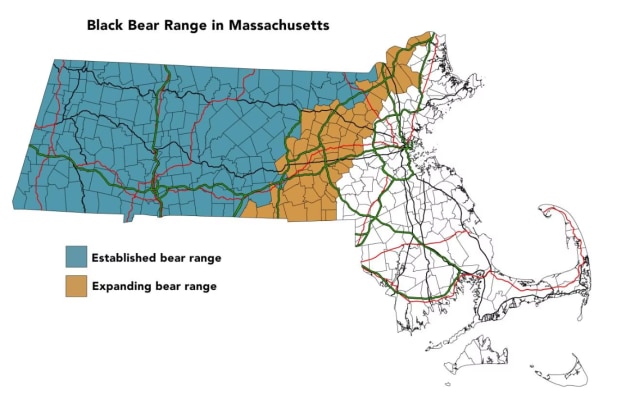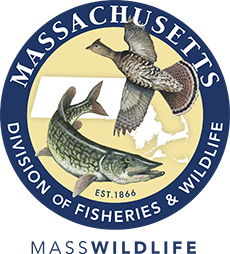- Division of Fisheries and Wildlife
Media Contact
Media Contact, MassWildlife

MassWildlife officials are reminding the public that March is when hungry bears emerge from their winter dens and seek out food. If you live in northern Middlesex County, Worcester County, western Massachusetts, or other areas where bears have been spotted, take these steps to prevent conflicts with black bears:
- Take down your bird feeders. Bears will often ignore seasonally available natural foods, like skunk cabbage, acorns, and nuts, in favor of an easy meal at a backyard bird feeder. Other species, including wild turkeys and coyotes, may also frequent bird feeders which can lead to more human-wildlife conflict. If you enjoy watching birds in your yard, MassWildlife suggests adding a water feature or growing native plants, shrubs, and trees to attract birds.
- Secure other human-associated food sources on your property. Store garbage in closed containers in a garage or outbuilding and put it by the roadside the morning of pick up. Individuals should also secure bee hives, chickens, and livestock. Coops and chicken wire provide inadequate protection from black bears. Properly installed and maintained electric fencing is the only way to protect chickens or bee hives from bears.
- Protect your pets. The presence of a dog could trigger a bear to be aggressive. Check your yard for bears before letting your dog outside. Keep dogs leashed when they’re outdoors and never let dogs chase or interact with bears.
Black Bears in Massachusetts
There are at least 4,500 black bears in Massachusetts and their range is expanding eastward. Take action by educating yourself and your neighbors about proactive measures to avoid conflicts with bears. For more information about black bears in Massachusetts, visit mass.gov/bears.

